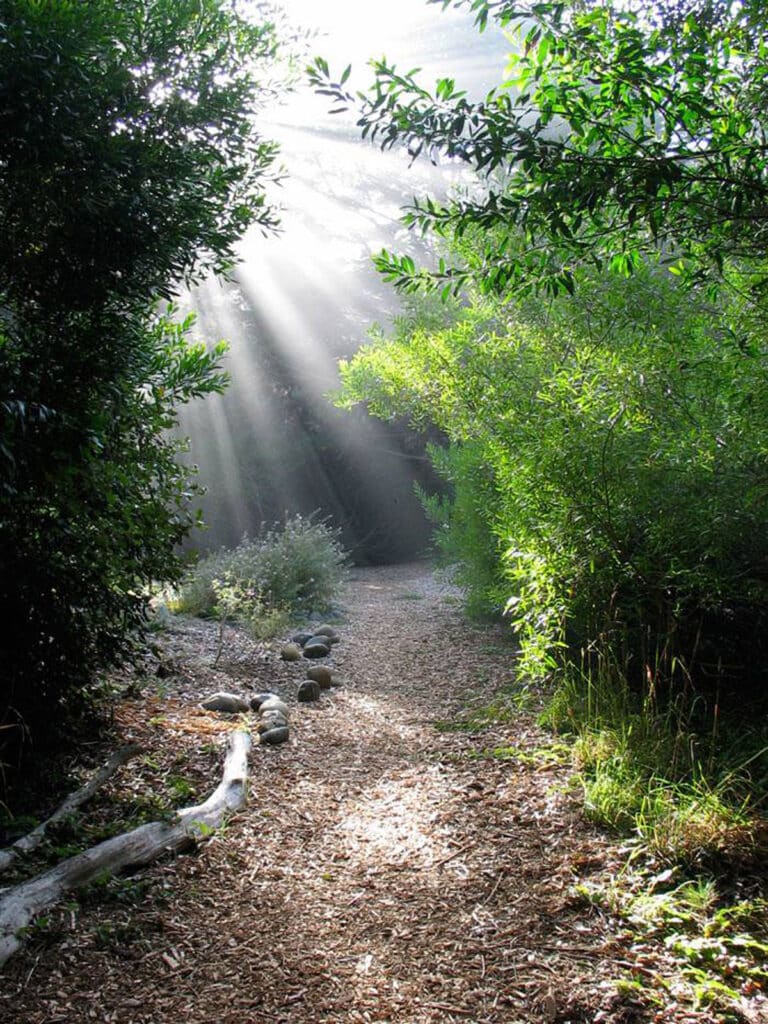One of the most important things about creating a powerful, transformative retreat is building a safe environment in which the work of the retreat can unfold. That’s why for an intensive writing retreat—one whose goal is deep writing and internal work—the setting is so important. It’s one of the reasons I love teaching at the Commonweal Retreat Center in Bolinas so much—it’s the perfect container.
The most critical aspect of building a safe container is confidentiality. I have a very specific confidentiality policy that goes beyond, “What happens at Commonweal stays at Commonweal.” Writers need to feel that their words will be respected, that they won’t be judged or given unasked for advice, feedback, praise or critique, and that they have complete control over how and when their stories are shared. (Which also means I will definitely NOT be sharing the personal work or stories of any of the workshop participants here.)
The other way safety is built is by one writer showing courage and sharing a piece that breaks open new territory for the group. Once one person has read out loud about shame or sex or incest or violence or dying parents or how they REALLY feel, it gives other permission to tackle those same topics.
Another key element of building the container is having people be physically separate from their daily lives. I ask everyone to contact folks at home as little as possible, to disconnect from the Internet and their online life, and to let go of their daily life completely for the length of the retreat—or as much as they possibly can. Even when I teach a weekend retreat in Santa Cruz, one that’s located right up the road, I ask local people to stay on site and not to commute from their homes—because as soon as you go home, your whole life crowds in—and you are no longer on retreat. And things happen on a retreat that just don’t happen in a weekly class. It’s the container. It’s the length of time. It’s the lack of distractions. Its the intention on the part of each individual and the group of a whole: we’re going on a journey together.
When you make the decision to go on retreat, you give your psyche a powerful signal that you are open to stories and messages from your deepest sedimentary layers. You consciously step out of profane, everyday time into sacred time.
Often from the very moment someone signs up for a retreat, a subtle change starts taking place deep inside them. Dreams or images come to them unbidden, closed doors start to creak open, and unanswered life questions begin floating to the surface. The soul begins to prepare for the work to be done.
Interestingly, people frequently sign up for a retreat in one frame of mind, with one purpose in mind, but by the time the retreat rolls around—three months or six months or even a year later—they’re in a very different space. Often no matter what you think your retreat is going to be about—it ends up being about something else. I ask people to trust their inner wisdom and whatever arises in the moment. And that sometimes means letting go of their ideas about the content of the work they were going to do.
Once people arrive at the retreat center, I consciously create the container in other ways—having a set schedule and keeping to it, giving people good, nourishing food and adequate down time to rest and integrate, setting specific guidelines for sharing work and listening, creating an opening and closing ritual, staying in touch with the mood and emotional tenor of the group—and responding to it in the moment. And I always take time to help people prepare for the transition back to their lives at the end of the retreat. Closure is very important.
One reason I favor Commonweal as a retreat center is the incredible food, the great natural beauty, the remoteness of the setting—there is nothing else to do but be in nature—and the fact that we can rent the whole facility and be a self-contained group.
For this particular retreat, with its focus on processing grief, change, and uncertainty, Evelyn is going to create a beautiful altar where people can arrive and place mementos of something they’re grieving for or letting go of in their lives. She has lots of ideas up her sleeve for helping people ground in their bodies and on the earth and to create sacred space for grieving.
Right now, it’s early and daylight has barely broken. I’m looking forward to a whole day of walking, talking eating and mulling over our material, sparking ideas off each other, tuning our instruments toward each other, building the kind of intuitive connection that shared facilitation requires. Mostly, I’m very happy to be leading this retreat with my wonderful collaborator and co-teacher, Evelyn Hall. I’ve worked alone far too much in my life. So running this retreat as a team is a wonderful gift I give myself.

